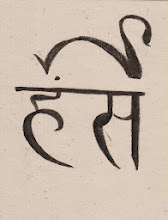What interested me greatly about our class discussion on Friday was the consensus that this opera did not need to be updated to make it feel more relevant. Even, that updating it would change the very essence of the work, rather than enhance it. I find that one can’t necessarily apply that label to all of the operas we have studied this semester. The Death of Klinghoffer, while striving to have a broad message, is limited by its controversial subject matter and treatment of said subject matter. Willie Stark seems limited by its unfulfilled realization of the necessary unification between drama and music. The Aspern Papers, while lyrically satisfying, hasn’t stuck in the repertory either somehow. There is something that I found to be so satisfying about the way in which Bolcom melded popular idioms with operatic vocal writing. This piece seems to me to have the perfect balance of drama and music. Now, granted, I grew up listening to jazz, so the jazz influence in classical music (read: Bolcom’s idiomatic use of popular music) is what I particularly love about this period of American Music.
It struck me that this piece has a certain timelessness to it, even though it is so firmly set in its own time period. I think that one of the main reasons for this is the fact that Bolcom (and Arthur Miller) conceived the work as a modern Greek drama, complete with tragic hero. There are many elements of this story that are familiar to us as an audience. They allow us to be comfortable with the characters and the story; we’ve seen them before. In the opera, the chorus’ opening scene and the existence of the chorus leader, Alfieri, as well as the prescient chorus itself, serve to frame the Greek tragic elements of the work. They heighten the claustrophobia in the work, acting as the community of Red Hook as well as the Italian community that the characters had left. Like many a Greek tragedy, the audience knows from the opening lines (or orchestral tones in this case) that the piece cannot end happily. Indeed, the orchestra tells us the ending. There is no mistaking it. The oppression of fate throughout the work (we are told repeatedly that Eddie had no choice, he was doomed to fulfill his tragic destiny) is particularly referential, as is the framing of Eddie as the tragic hero (basically a good guy with a large flaw that he cannot see). In the program/liner notes both Bolcom and Miller commented on the essential passion of the characters in the work, citing that such open passion is both essentially in the tradition of the Greek tragedy and essentially operatic. It is no wonder that the piece leant itself to being set to music.
Monday, March 29, 2010
Subscribe to:
Post Comments (Atom)

No comments:
Post a Comment